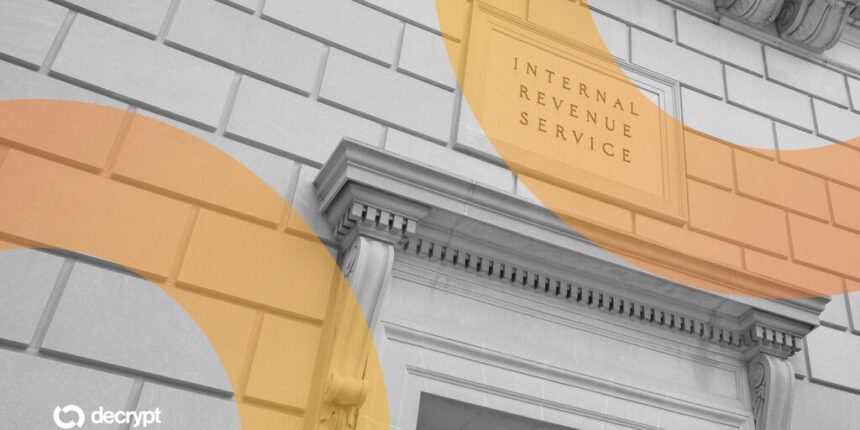The landscape of cryptocurrency taxation is undergoing a significant transformation, as the IRS expands its compliance investigations beyond targeted individuals to broader sweeps across multiple cryptocurrency exchanges. According to David Klasing, a dual-certified tax attorney and CPA, this shift in strategy marks a departure from previous IRS practices, which focused on specific transaction thresholds and narrower groups of individuals. Instead, the agency has increasingly adopted a comprehensive approach aimed at identifying tax non-compliance among a wider array of crypto users.
The Treasury Inspector General’s report indicates a staggering 75% potential non-compliance rate among cryptocurrency users identified through exchange data, intensifying the audit pipeline. Klasing warns that this enforcement shift heralds a “turning point” in how cryptocurrency taxation is approached, potentially transitioning from an “opt-in” to an “opt-out” model for millions of users. This could signify that taxpayers might be automatically considered non-compliant unless they can demonstrate adherence to tax laws.
Since 2017, the IRS has steadily bolstered its crypto surveillance capabilities. Legal experts note that the agency’s reach has evolved to include sweeping requests for user records at major exchanges and crypto companies. Utilizing “John Doe summons” alongside sophisticated blockchain analytics, the IRS can now trace real-time crypto transactions. This expanded initiative has already yielded significant results; during the fiscal year 2021 alone, the IRS reported $3.5 billion in crypto asset seizures, making up a staggering 93% of its total asset seizures that year.
The IRS has targeted major platforms such as Coinbase, Kraken, and Poloniex using similar summonses, and has opened numerous examinations on potential non-compliance. Klasing highlighted that the IRS must satisfy three specific legal thresholds for courts to approve these John Doe summonses, including establishing non-compliance suspicions and proving that pertinent information isn’t available from other sources. However, he notes that these standards provide limited safeguards for crypto users, as courts traditionally only require minimal justification before granting the IRS access to records.
The IRS has now expanded its Electronic Payment Systems Initiative to encompass “virtual currencies,” combining exchange data with blockchain analytics to create detailed financial profiles. The implications are stark—with the IRS reportedly achieving a 75% potential non-compliance rate among crypto users identified through digital asset exchanges.
Nick Waytula, an attorney and head of tax at Crypto Tax Calculator, echoed these concerns, stating that the broadened use of John Doe summonses significantly raises the compliance expectations for crypto firms. This increased scrutiny means that even unintentional past non-compliance could surface and lead to penalties or criminal referrals, marking a radical shift in the enforcement landscape.
The anticipated implementation of a 1099-DA reporting regime aims to enhance reporting accuracy and reduce discrepancies that have historically plagued interactions between taxpayers and the IRS. However, Waytula cautioned that inconsistencies between exchanges’ reported data could lead to greater confusion and mismatches.
In recent months, accountants like Klasing have reported an uptick in clients receiving notices from the IRS regarding significant misreporting by well-known crypto exchanges, particularly from 2017 to 2019. The Government Accountability Office has criticized the 1099-K forms for their lack of useful information, which only provided aggregate figures without necessary context.
Despite these developments, challenges remain. Dmitri Alexeev, a CPA and Tax Partner at Aprio, pointed out that the current trajectory of enforcement signals growing regulatory oversight without constituting an abrupt policy shift. He emphasized the need for crypto platforms to enhance their reporting and compliance processes.
In a notable recent ruling, the Supreme Court chose not to hear a case involving claims that the IRS violated Fourth Amendment rights by acquiring Coinbase trading data through a John Doe summons. This decision has further implications for privacy advocates, exemplifying the ongoing tension between regulatory oversight and users’ rights to privacy in the digital age.
The pressures of increased enforcement may alienate compliant users who find themselves overwhelmed by the complexities of cryptocurrency taxation. Many in the crypto community are wary of heavy-handed regulatory approaches, fearing that overregulation could create friction with high-value taxpayers.
While there is currently no official evidence of systemic errors leading to incorrect targeting of crypto users due to flawed exchange records, discrepancies can lead to IRS notices whenever third-party information does not match taxpayer returns. As the IRS grapples with adapting to the growing crypto landscape, the implications for users and exchanges alike will likely continue to evolve in the months to come.







